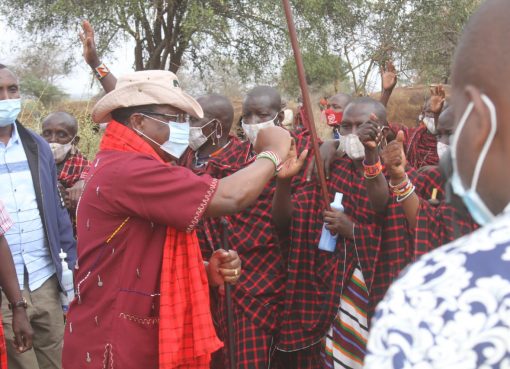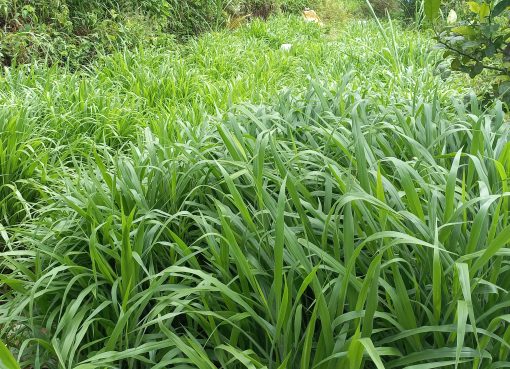The government will repossess grabbed National Museums of Kenya (NMK) land, Principal Secretary State Department of Culture and Heritage Ms Ummi Mohammed Bashir has said.
Ms Bashir expressed concern over massive land grabbing of NMK which she said has affected expansion of the historical, cultural and national heritage sites’ facilities.
“I want to state that as a ministry we are very concerned about the extent of grabbing of NMK land. We know there has been a tussle between individuals who have encroached on this property and we want to put on emphasis that the land will be repossessed and justice will prevail,” she affirmed.
The PS regretted that some of the country’s most iconic national heritage sites have been allocated to private individuals and assured Kenyans that the government had begun securing 150 monuments and heritage sites across the country.
Ms Bashir indicated that the Ministry will liaise with the National Land Commission to have all title deeds for irregular allocations of land belonging to the NMK revoked.
The PS observed that some of the land includes gazetted sites such as Fort Jesus in Mombasa and Hyrax Hill prehistoric site in Nakuru, meant for the construction of museums in various parts of the country.
“The Ethics and Anti-Corruption Commission should investigate and if anyone is found culpable, recommend prosecution of the individuals for their role in the irregular allocation of National Museum of Kenya lands and failure to take action to protect public property,” stated the PS.
Speaking at the Hyrax Hill Prehistoric Site and Museum in Nakuru, where she led a tree planting exercise Ms Bashir further warned Kenyans against encroaching on historical, cultural and heritage sites as that destroys their originality and quality.
To combat the devastating impacts of climate change in Kenya, President William Ruto has mobilized his administration in a drive towards planting five billion trees in the next five years, and an additional 10 billion by 2032.
The President said this will eventually lead to the rehabilitation and restoration of 10.6 million hectares in the 290 constituencies, as well as some specially selected ecosystems and water towers threatened.
“We are concerned about climate change and its impact on Kenya generally and our arid and semi-arid regions in particular. We will address the effects of this phenomenon and its ravaging effects at home and abroad,” Dr Ruto stated.
Bashir vowed that the state will protect the country’s historical tombs from encroachment by private developers and land prospectors.
According to NMK a majority of the tombs are located at the heart of Lamu old town. They include Mwenye Mui Zahid Mngumi’s tomb that is almost 200 years old located in the Langoni area of Lamu Island. Mngumi was a patron of the Lamu old town and was responsible for building the Lamu Fort between 1813 and 1821.
There is also the Mwana Hadie Famau tomb, which is over 400 years old and is in the Mkomani area of Lamu old town. Hadie is referred to as the ‘Saint of Lamu’ owing to her strong religious beliefs during her lifetime.
There is also a 14th-century pillar tomb in the Gadeni area of Lamu old town. These three tombs are critical to Lamu’s history, having been around for over a century. They are also a key tourist attraction in the region.
The three, however, have since been fenced off by private developers and the NMK has expressed concerns that they face destruction.
“We need to protect them as they are. We will not allow them to be grabbed, destroyed or brought down as this will be a very huge disservice to our culture and history,” Ms Bashir assured.
Lamu is home to hundreds of sites and monuments, the majority of which are unreachable due to their remote location. Of all the counties, Lamu has the highest number of historical monuments and buildings.
Lamu Old Town remains a key tourist attraction site in the Coast region due to its effortlessly preserved culture and heritage spanning decades.
Today, the town stands as the oldest surviving town in East Africa with over 700 years of continuous human habitation and equally boasts itself as the only Swahili settlement to retain its originality since inception.
The PS observed that Kenya’s heritage was a significant part of the citizen’s life adding that the country’s prosperous past has built the groundwork for a prosperous future.
She described the grabbing of NMK’s land as ‘unpatriotic’ and a danger to Kenya’s rich cultural heritage.
According to the latest report by Auditor General Nancy Gathungu the NMK land valued at Sh1.57 billion has never been revalued since the 1990s.
Ms Gathungu disclosed that NMK has 150 parcels of land countrywide but only 43 of them have title deeds.
“The remaining 107 parcels have no ownership documents,” the auditor reports.
NMK is a state corporation established by an Act of Parliament, the Museums and Heritage Act 2006.
It is a multi-disciplinary institution whose role is to collect, preserve, study, document and present Kenya’s past and present cultural and natural heritage.
It manages regional museums, sites and monuments of national and international importance alongside priceless collections of Kenya’s living cultural and natural heritage.
Ms Bashir observed that the country boasts seven UNESCO World Heritage Sites, second only to South Africa (10) in terms of the number of designated sites in an African country.
The UNESCO World Heritage Sites in Kenya are Lake Turkana National Parks; Mount Kenya National Park and Natural Forest, Lamu Old Town, Sacred Kaya Forests of the Mijikenda; Fort Jesus; the Great Rift Valley lake system; and Thimlich Ohinga archaeological site.
The PS noted that Cultural tourism was fast becoming a hot product worldwide and Kenya is keen to cash in on it through digital marketing.
She explained that the government had a few years ago elevated 21 historical sites to national monuments in a bid to guard their importance and raise their profiles among the country’s endeared places.
The sites are found in Nairobi, Machakos and the coastal region and include some of the most well-known historical places in the country.
The sites are African Heritage House (Machakos); Kaloleni Social Hall (Nairobi); First Old District Commissioner House Taveta; Methodist Church Hola Mission (Tana River); Taveta ACK Holy Trinity Church, Mahoo; the German Fortress; Voi Commonwealth War Graves; Maktau Indian Commonwealth War Graves; Taveta Indian Commonwealth War Graves; and Taveta Indian Military Cemetery.
Others are Taveta Commonwealth War Graves; Taveta ACK Graves; Maktau Railway Station; Maktau Picket Hill; Salaita Hill (Taita-Taveta); Mau Mau Memorial Site at Hola (Tana River County); Nzambani Rock, Kyuluni; Ukasi Rock (Kitui); Kino Caves (Kenyatta Caves) in Kitui; Nairobi (Kariokor) Cemetery; and Kaloleni Estate Streetscape in Nairobi.
The National Museums and Heritage Act allows the Cabinet Secretary in charge of culture and national heritage to declare a site a monument if he feels the place deserves it.
Members of the public are allowed to challenge the declaration within 60 days.
County Chief Officer for Culture and Tourism Ms Rosemary Kimani said the devolved unit’s administration had entered into a Memorandum of Understanding with NMK to set up a cultural centre at Hyrax Hill Museum.
Kimani said this will help in passing on traditions to younger generations. “We are aware of the fact that culture plays a crucial role in strengthening our community and hence the need to put up such a facility that will greatly promote our heritage,” she added.
Kimani indicated that the way of life of communities residing in Rift Valley Region will be showcased at the facility that is expected to increase the number of domestic and international tourists in the county.
Besides being a tourism site, she said, the project will create employment for youths in the area.
“This will definitely go a long way into incorporating all our people into embracing their culture and heritage as it is worthy of preservation,” Kimani pointed out.
By Anne Mwale





